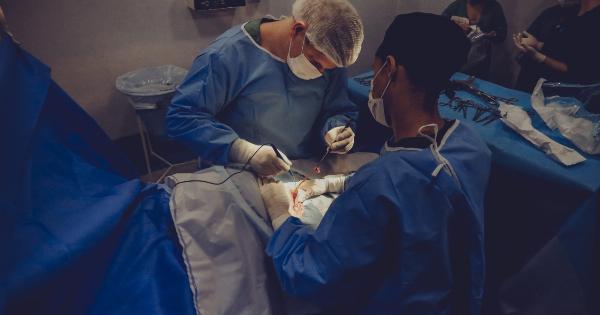Heart surgeries have always been complex and time-consuming procedures. However, a recent breakthrough in Russia has revolutionized the medical field by drastically reducing the time required for these life-saving surgeries.
With cutting-edge techniques and advancements in technology, cardiac surgeons in Russia are now able to complete heart surgeries in just twenty minutes, saving countless lives in the process.
What led to the breakthrough?
Before we delve into the details of these 20-minute heart surgeries, it is important to understand the factors that led to this remarkable breakthrough.
Over the years, cardiac surgeons and researchers in Russia have tirelessly worked to improve surgical techniques, enhance preoperative planning, and develop innovative medical devices.
Advancements in surgical techniques
The development of minimally invasive and robot-assisted surgical techniques has played a crucial role in reducing the time required for heart surgeries.
These techniques involve making smaller incisions and utilizing robotic tools to enhance precision and efficiency during the procedure. By minimizing tissue damage and improving surgical accuracy, surgeons can now perform surgeries with greater speed and safety.
Innovative medical devices
Another essential component of this breakthrough is the development of advanced medical devices. These include intraoperative imaging tools, cardiac robotic systems, and artificial heart pumps, among others.
These devices aid surgeons in visualization, navigation, and support during the surgery, allowing them to save precious time while ensuring successful outcomes.
The role of preoperative planning
Efficient preoperative planning has also contributed significantly to the success of 20-minute heart surgeries in Russia.
Utilizing advanced imaging techniques like MRI and CT scans, doctors can create detailed 3D models of the patient’s heart before the surgery. This allows them to carefully analyze the cardiac anatomy, identify potential complications, and devise optimal surgical strategies ahead of time, streamlining the surgical process and reducing time wasted during the operation.
The impact on patient outcomes
The introduction of 20-minute heart surgeries in Russia has had a tremendous impact on patient outcomes.
Not only does it significantly reduce the risk of complications during surgery, but it also minimizes the time patients spend under anesthesia and shortens their recovery time. Faster surgeries lead to less trauma to the body and lower chances of infection, resulting in better overall patient experiences and improved survival rates.
Challenges and limitations
While 20-minute heart surgeries bring tremendous benefits, they also present certain challenges and limitations.
The complexity of some cardiac conditions, patient-specific factors, and the learning curve associated with new techniques and devices can affect the feasibility of completing a surgery within such a short timeframe. Additionally, not all heart surgeries can be performed using these expedited techniques, as some cases may require more extensive procedures.
However, ongoing research and continuous refinement of these techniques aim to overcome these limitations and make 20-minute heart surgeries accessible to a wider range of patients.
The global impact
Given the remarkable success of 20-minute heart surgeries in Russia, the impact is not limited to the country alone.
The pioneering work done by cardiac surgeons in Russia has garnered international attention and sparked interest in other parts of the world. Medical communities worldwide are looking to adopt and adapt these techniques to improve patient outcomes and revolutionize heart surgery practices on a global scale.
Conclusion
The introduction of 20-minute heart surgeries in Russia marks a groundbreaking milestone in cardiac surgery.
By combining advancements in surgical techniques, innovative medical devices, and meticulous preoperative planning, surgeons in Russia have demonstrated the feasibility of completing heart surgeries in record time while ensuring optimal patient outcomes. As the field of cardiac surgery continues to evolve, it is a testament to human ingenuity and relentless dedication to saving lives.


























